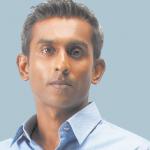Encourage whistle-blowers who squeal on drug cheats, says Cram
Olympic 1,500m medallist Cram says 'brave' whistle-blowers who outed them must be encouraged
For a while, the tables were turned.
The interviewee became the riddler, firing a question, then one more, and another, in quick succession.
By the time the barrage was over, his stance was clear as the light of day.
"Sports will never get rid of drugs - it won't," was Steve Cram's grim analysis.
The 55-year-old's pomp was during the golden era of British middle-distance running, marked by battles between Sebastian Coe and Steve Ovett which turned middle-distance running into an unforgettable duel.
Cram elbowed his way in to form a world-class British triumvirate, finishing second behind Coe in the 1,500m at the Los Angeles Olympics in 1984.
Addressing the topic of doping, the Englishman initially raised eyebrows when he talked about speeding on roads, drivers' general behaviour when approaching speed cameras, and their undeniable habit of speeding up the moment the camera is safely passed.
"I am simplifying it into the context of daily life. Sports just reflects what is going on in society generally, and we shouldn't stay away from the fact," he explained.
"People want to take short cuts in society, and they do it in sports as well."
Cram was speaking on the sidelines of the Mass Participation Asia Conference, a two-day affair bringing together industry experts at the Conrad Centennial Hotel.
While there have been calls to make doping legal, leaving it up to the athletes to decide if they want to risk their long-term health, Cram is against the idea of lifting the shackles on the use of performance enhancing drugs, insisting instead that the war must go on.
Last month, the IAAF provisionally banned the All-Russia Athletic Federation for alleged state-sponsored doping, and all the country's track and field athletes have been barred from international events, including next year's Rio Olympics.
"I think it's naive to think that there was no systemic cheating going on historically, perhaps in other parts of the world as well," he said, backing the "drastic" move taken by the IAAF.
Pointing to allegations of Russian state-sponsored doping and related corruption, he called for efforts to take out the platform for doping, instead of just focusing on individual athletes.
"For them to change that behaviour, the only option we have is to ban Russia as a nation. And hopefully clean Russian athletes will put pressure on the federation," he added.
"There are some bigger questions within all of this for sport in general. I think the Russian problem is not just with athletics. I think the problem with other countries isn't just (confined to) athletics as well," he said.
While acutely aware that more funding is required for the World Anti-Doping Agency or any sports federation to step up any anti-doping efforts, Cram put together a list of things he hopes can be done.
He says education of younger athletes and the establishment of independent drug-testing organisations within countries as crucial.
Whistle-blowers should also be encouraged.
"The idea that Russia is cheating in sports is no surprise. The surprise was that somebody came up and was brave enough to talk about it. Whistle-blowing, we need to increasingly see how we can encourage that in the right way," said Cram.
PLATFORM
"That's what we need to catch the athletes, the managers, the coaches and the infrastructure that creates a platform for (doping)."
Coe, the current IAAF president, was grilled by the British Parliament's Culture, Media and Sport Select Committee on Wednesday, and was made to answer questions ranging from his knowledge of doping-related issues to a possible conflict of interest in his association with sportswear giants, Nike.
Cram backed his compatriot, calling him the "right guy", with integrity and desire to lead the IAAF in its anti-doping battle.
"The media, particularly in Britain, have decided to have a go at him. But I think it is a big opportunity. Hopefully, it gives him a chance to do things a bit more quickly. I think we are in a situation when we need some drastic measures," he said.
"In sports, sometimes we spend way too much time complaining about the people around sports, when actually most of us can't be bothered to step into those positions.
"I think it is important that someone of the calibre of Seb Coe has come forward to do that," said Cram, who remained realistic.
"We will do our best to catch as many people as we can, but we can never stop speeding," he argued, again pointing to his initial example.
"We need to do our jobs better, and we need to have better people working in our organisations."
Why mass events are necessary
Industry experts, including organisers of Cycle Asia, The Colour Run and the Sundown Marathon, gathered at the Conrad Centennial Hotel yesterday for the opening day of the two-day Mass Participation Asia Conference 2015.
Steven Cram was the keynote speaker, and he presented his take on why cities should host mass participation events, fondly recalling how his start in athletics came via similar events.
Cram went from participating in small-scale events held in parks to coming close to sporting immortality, when he won the silver medal in the 1,500m at the 1984 Olympics in Los Angeles.
The conference continues today.
- SHAMIR OSMAN
Get The New Paper on your phone with the free TNP app. Download from the Apple App Store or Google Play Store now



